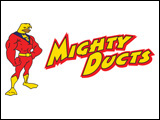Today we live in a society that seems to be less and less concerned with reality. We drink instant coffee and reconstituted orange juice. We buy our vegetables on cardboard trays covered with plastic. But perhaps the most dehumanizing thing of all is that we have allowed the media to call us consumers – ugly. No! I don’t want to be a consumer. Anger consumes. Forest fires consume. Cancer consumes (Glimpses of Grace, Madeleine L’Engle, p. 24).
To much of the world I live in, I am a consumer. And I am afraid that with all the propaganda I am exposed to on a daily basis I even think of myself basically as a consumer. That is to say my identity is that of a cog in the economic wheel of fortune. The end of the line, you might say. The reason why goods and services are brought to the market. If I chose not to be a consumer and enough people joined me in that choice, our local and national economy would grind to a halt. What would be the point of offering goods and services if no one were willing to purchase them?
Now I suppose I should not complain. I should be thankful that I live in a country where goods and services are available and that I have resources to acquire many of them. And I am indeed grateful. I have lived in parts of the world where the economy was not functioning well and I know from experience how frustrating that can be. In such situations people generally fall into one of two categories: they have money to pay but the products they are looking for are not available, or they don’t have money to buy the products that are available. But even in such a situation, the absence of a healthy economy underscores the identity of persons as consumers as they spend an inordinate amount of time and effort to acquire the basic necessities of life.
But back to the world in which I now live. It seems to me that in the developed world, once our basic necessities of life have been taken care of by a well-oiled economy, the whole system begins to cross a line. Before it does, you might say – at least theoretically – we are all working together to make sure all of our needs are taken care of. But somewhere along the way you get the sense that as a consumer you have become a target. Those producing goods and services now begin to brain-wash you into thinking that you need to ratchet up your consumption. And so the great deception begins its deadly work.
If one is at all alert, it doesn’t take much to figure out that advertisers are generally trying to “create a need” so that you will want to consume their products – to buy more things you often don’t need. Glossy catalogues picture all the neat things you never knew you needed – but now do. Billboards and newspapers tell you that you deserve to consume just a little more than the year before. One of the reasons I cannot listen to a local so-called “Christian” radio station for more than ten minutes at a time is that it participates whole-heartedly in the great deception we are talking about – one song, ten commercials!
What iritates me most, however, are the repeated commercials on television scattered throughout what may otherwise be a good program. Why is it necessary to show the same commercial ten times an hour, sometimes back to back? A shampoo that will revolutionize my sex-life. A sleek automobile slithering across a desert at a speed for which I would be fined if I ever tried it myself. Ten times an hour! A vacation in the sun with all the amenities fit for a god or goddess. Over and over and over again!
I believe it was Lenin who once said that the point of propaganda is not to tell the truth, but to tell a lie often enough until people begin to think it is the truth. Perhaps the biggest lie we have begun to believe in our society is that our primary identity on this earth is that of being consumers. We spend our extra hours in gigantic malls – if for no other reason than to confirm our primary identity. It is even fashionable now-a-days to build churches in such a way that you get the familiar “mall” feeling when you enter. Could it be that some of these churches are basically “hawkers and peddlers” (2 Corinthians 2:17) of the gospel in the tradition of consumerism?
The more I reflect on the identity I am pressured to accept, the more I find it revolting. I am more than a consumer who needs to keep goods and services coming my way. I am a human being, created in God’s image, with heart and soul. I am a husband, a father, a grandfather, a friend. I am a lover of nature, a word-crafter. I am an encourager, a motivator, an example, a confidant. I am an earth-keeper and a brother-keeper. I am a servant of God – indeed a friend of God. I am a listener, a healer, a helper, a volunteer. I am also a consumer, but when I begin to believe the lie that that is my primary identity I have been dragged across the line.
It’s time to name the lie that says we are basically consumers of goods and services for what it is. And to fight back. As Madeleine L’Engle says, when we become mainly consumers we are consumed and the picture becomes ugly. You and I are more than consumers. Let’s not be deceived.



